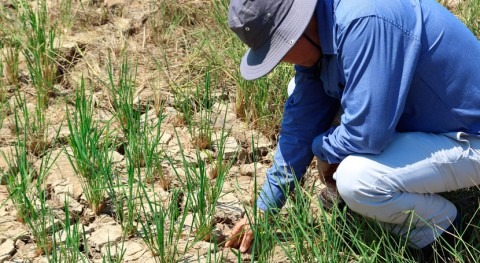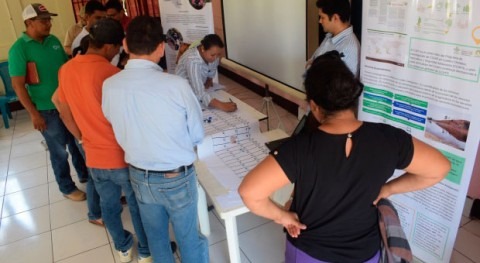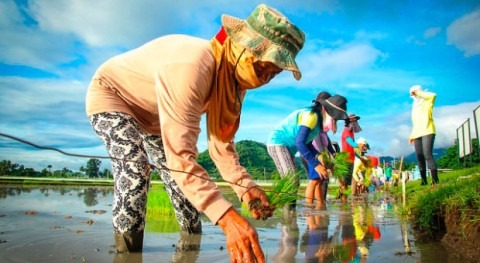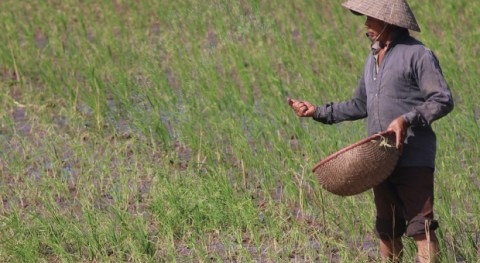Access to and control over production inputs can transform women farmers into active change agents in their communities. Such a transformation is a crucial step towards women's empowerment that research and development organizations must consider. Empowerment in the agriculture context is a complex process that encompasses decision-making, autonomy and bargaining capacity. Women's empowerment particularly proves to be challenging, as it involves the issue of power relations and distribution of power among men and women.
A climate change project in Guinayangan Climate-Smart Village (CSV) in the Philippines sought to forward the empowerment of women farmers by generating evidence from participatory and community-based action research. Results show that gender-specific and gender-sensitive initiatives can enhance the adaptive capacities of women. Women's capabilities to decide on key farming and household issues can be greatly boosted by giving them access to resources and relevant information on climate change.
The project was implemented by the International Institute of Rural Reconstruction (IIRR) and was supported by the CGIAR Research Program on Climate Change, Agriculture and Food Security (CCAFS) in Southeast Asia, the Philippine Department of Agriculture-Bureau of Agriculture Research (DA-BAR), and other partners from the sub-national, national and international levels.
Climate change as the great “divider”
Women farmers face wide-ranging constraints to their subsistence, due to their lack of access to resources, their roles, workloads, and other factors. Women tend to earn less and are more likely to be economically dependent than men. With limited or no access to resources, they cannot contribute to the national income measures that appear in official statistics. As a result, they are not regarded as crucial contributors to the economy and they are often silenced in decision-making processes.
Climate change further pushes women farmers to the periphery of their society. Support services ranging from training and extension activities to awareness-raising campaigns could educate women farmers about climate change adaptation and mitigation. However, unlike men, they lack the access to support services that can help them recover from the negative impacts of climate change. This lack of access is perpetuated by a variety of factors, which include existing societal stereotypes, unfair gender relations inside their households, and gender-based violence within the society.
Is women's empowerment in agriculture possible?
In Guinayangan CSV, the CCAFS-supported project engaged women farmers in climate-smart agriculture (CSA) technologies and practices. CSA provided livelihood opportunities for them, which enhanced their economic status in the households and the farms. Through gaining a better economic status and recognition, women were able to narrow—if not eliminate—the gender gap that limited their actions. They were also able to improve their adaptive capacity to climate change.
This project demonstrates that when tackling the impacts of climate change, gender-based differences, vulnerabilities and capacities must be considered. Women must be given the possibility to participate in climate action to develop interventions that transcend the environmental and the sociocultural landscapes.








